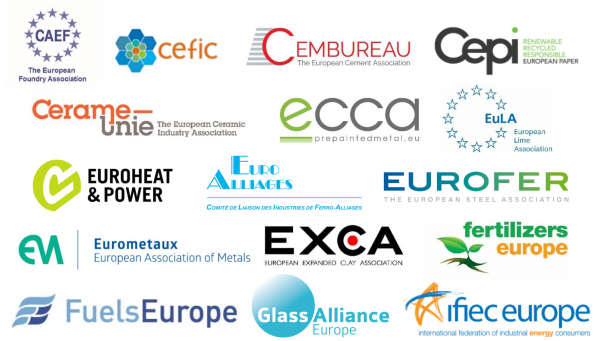
Publications » Position papers » Joint industry statement on Industrial Emissions Directive and decarbonisation policy options
Joint industry statement on Industrial Emissions Directive and decarbonisation policy options
Downloads and links
Recent updates

Our associations represent industrial sectors regulated under the Industrial Emissions Directive (IED) and support the Commission’s Green Deal objective to review EU measures to address pollution from large industrial installations, look at the sectoral scope of the legislation and how to make it fully consistent with climate policies.
The disruptive breakthrough technologies necessary to significantly contribute to achieving the climate-neutrality objective will require time to be developed, up scaled and commercialised. On one hand, various GHG abatement options are not available to the same extent across sectors and regions, on the other they are not directly under the control of the operators of IED installations, who to large extent remain dependent on other sectors, notably the energy one.
Mindful of the above considerations, the undersigned sectors have analysed the various policy options considered in context of the TSS and came to the following conclusions:
We support full coherency between policy measures addressing various environmental issues, in particular with regards to the IED, that is the backbone of the environmental legislation applicable to our industrial installations. In the spirit of better regulation principles, amongst others, we reject the option to regulate GHG emissions under an IED permitting regime where those GHG are already regulated under the ETS.
We support:
We conditionally support:
We do not support:
We have strong reservation regarding the option consisting in establishing a long-term permit review obligation (e.g. by 2035) focusing on the capacity of the concerned installations to operate in accordance with EU’s carbon neutrality objective.
A detailed analysis supporting those conclusions is provided in the paper.


Download this publication or visit associated links
Strasbourg, 17 December 2025 – The European Commission’s latest proposals on the Carbon Border Adjustment Mechanism (CBAM), unveiled today, correctly identify several loopholes that risk undermining its effectiveness, notably regarding EU exports, downstream sectors and circumvention practices. However, despite these laudable efforts, the measures put forward fail to deliver a comprehensive and durable response to carbon and jobs leakage, warns the European Steel Association (EUROFER).
A milestone occasion to quickly and effectively restore affordable electricity, to relaunch the
decarbonization and strengthen the international competitiveness of the European steel
industry.
Brussels, 02 December 2025 – Unchanged negative conditions – U.S. tariffs and trade disruptions, economic and geopolitical tensions, protracted weak demand and still high energy prices – continue to weigh on the European steel market. EUROFER’s latest Economic and Steel Market Outlook confirms for 2025 another recession in both apparent steel consumption (-0.2%, unchanged) and steel-using sectors (-0.5%, revised from -0.7%). A potential recovery is expected only in 2026 for the Steel Weighted Industrial Production index (SWIP) (+1.8%, stable) and for apparent steel consumption (+3%, slightly revised from +3.1%) – although consumption volumes would still remain well below pre-pandemic levels. Steel imports retained historically high shares (27%), while exports plummeted (-9%) in the first eight months of 2025.